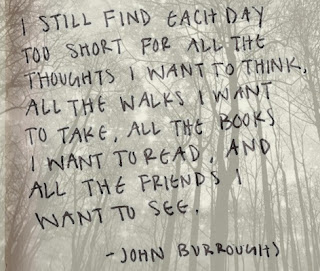Author: Matthew Goodman
Pages: 480
Publisher: Ballantine Books
ISBN: 978-0345527264
When
I was in elementary school, I read a biography of Nellie Bly. It was
one of those short, simplistic children's biographies from the school
library. If I remember right, I filled out a book report form which
looked like a train car that snaked around the classroom with the
slogan, “Reading Keeps You on Track” or something similar. I was
in a phase where I read a lot of biographies of women who struggled
against gender discrimination of their times – Elizabeth Blackwell,
Clara Barton, Florence Nightingale, and Susan B. Anthony. When it
can time to make some decisions in my life, I returned to these
heroes and role models to guide me. That's the power of good
biographies.
Ken
Eikenberry wrote a piece entitled “5 Reasons to Read More Biographies”. He believes that biographies allow you to:
- stand on the shoulders of giants
- remind you that history repeats itself
- promote self discovery
- see the world in new ways
- have mentors at a distance
I think Eikenberry is correct. Reading biographies can show a lot more than just the person's life. When really engaged with the story, biographies make me think deeper about history, how people respond and react to their situations, and makes me think about how I might react. It is well known that many of our presidents and CEOs have been readers of biographies.
As I read Eighty
Days, I not only learned more about Nellie Bly and was introduced
to Elizabth Bisland, but I was also struck by the enormity of the
things I did not know and the ability of time to bury sensational
stories. It made me wonder how much of what I find in current events
to be unforgettable will actually even be remembered in 10, 20 or 100
years. But, let me go back to the beginning.
Eighty Days
alternates between telling the story of Nellie Bly (born Elizabeth
Jane Cochrane) and Elizabeth Bisland. Nellie was from a working
class background who gained a following as a reported at the
Pittsburgh Dispatch and later the New York World. Her
early stories focused on the plight of poor and working women and was
best known for her insider expose on a poorly run mental hospital.
At one point, Nellie tried to convince her editor that she should try
to beat Jules Verne's fictional trip around the world in eighty days.
Being young and a woman, the editor initially denied her request, but
a year later, he sent her off. Being practical, Nellie traveled with
one major outfit and a small carry bag, to hasten her ability to
change modes of transportation. In her travels, she was able to meet
Jules Verne and finished the trip in just over seventy-two days.
Throughout her journey, she reported back to the paper, and became a
major celebrity wherever she visited.
Not to be outdone,
The New York newspaper Cosmopolitan
sent its own reporter around the world in the opposite direction.
Elizabeth Bisland had a background very different from Nellie's. She
was born and raised in the south – well-read and even conducted
salons in New York that attracted up and coming writers and artists.
She was refined and said to be beautiful and captivating. When the
Cosmopolitan heard
about Bly's trip, they gave Elizabeth two days to be ready.
Unfortunately, her journey in the opposite direct brought her into
some very difficult weather, and she arrived in New York days after
Nellie Bly.
It
was well into the journey that Bly learned she had a rival. What
both women didn't realize was the sensationalism of their travels
back home. Newspapers across the country reported (quite often
falsely) tales of their trip. A contest was conducted with a
prediction of when Bly would arrive in New York. Board games were
created. Nellie Bly's image was used in multiple advertisements.
These were the conversations of the proverbial watercooler.
This
was the first realization I had. If the author is correct, and I
have no doubt he is, for almost three
months, Nellie Bly and
Elizabeth Bisland were on the lips and minds of most people across
the country – like the Kardashians in all the tabloids and
magazines today. Yet, within a year, both women struggled to
continue their work as reporters and Nellie Bly couldn't make it as a
lecturer on the circuit. Although many people today might
recognize the name Nellie Bly, few would recall Elizabeth Bisland.
Even with the biographies I read as a child, I was not introduced to
this rival of Bly. This was one of those books that literally many
my mind shift – it had to re-construct what I thought I knew.
Which led me to the next epiphany – there is a whole lot in the
world that I don't know! As John Burroughs said, “I still find
each day too short for all the thoughts I want to think, all the
walks I want to take, all the books I want to read, and all the
friends I want to see.”


No comments:
Post a Comment